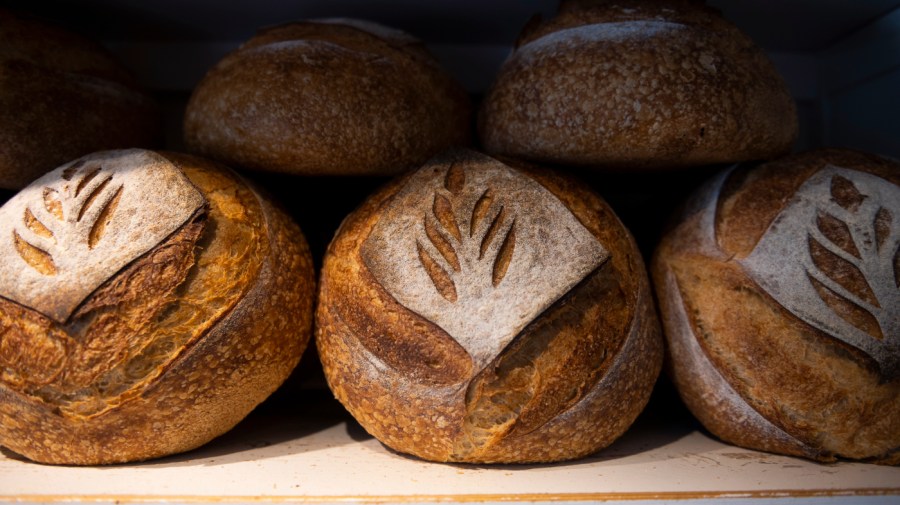
Thanksgiving was approaching, a wonderful time of feasting and sharing, and I had just returned from my local supermarket in Clemson, S.C., picking up items to round out a special dinner. As I put things away, I checked to see where the items had originated, which left much to ponder.
The nice head of lettuce had been harvested and packed in Salinas, Calif. The jar of sweet pickles hailed from India and the tea bags from Sri Lanka. There was barbecue from Wisconsin, Roma tomatoes from Central America, a loaf of bread from North Carolina, fresh milk that had traveled from Texas, and a large bottle of wine from Chile. And here I was in a small South Carolina town of 18,000 people.
First, I reflected on how people scattered so far and wide, speaking different languages, shaped by different cultures and living under different governments, could somehow anticipate what I needed. How they could grow, harvest, pack and ship the items on my grocery list at just the right time.
Then, I thought that given the amazing outcome and distances traveled, the goods were more than just affordable. Despite my complaints about inflation, all things considered, these were cheap.
That led me to remember that there are still lots of people who do not have a Thanksgiving meal. But, just as at that first Thanksgiving in 1621 when the Pilgrims invited others, including Native Americans, to share in their harvest, my community seeks to share what we are fortunate enough to have.
Finally, thinking about bountiful harvest brought to mind words from poet Orrick Johns’s “Wild Plum”: “They are unholy who are born to love wild plum at night who once have passed it on a road glimmering and white … They are unpitied from their birth and homeless in men’s sight, who love, better than the earth, wild plum at night.”
Yes, Thanksgiving is a good time for all lovers of good food and fellowship to heed Johns’s words and enjoy that special Thanksgiving meal. We can also take just a moment to show appreciation for the market process — glimmering and white — that extends our reach beyond nearby plum trees and helps us flourish.
This gets us to Adam Smith’s system of natural liberty. In the great thinker’s words: “Every man, as long as he does not violate the laws of justice, is left perfectly free to pursue his own interest his own way, and to bring both his industry and capital into competition with those of any other man, or order of men.”
This freedom to pursue one’s own ends is what makes meals from beyond our gardens and farms possible. In explaining how the endless push-and-pull between customers, through their buying decisions, and producers, as they respond, anticipate, and provide, Smith wrote: “It is not from the benevolence of the butcher, the brewer or the baker, that we expect our dinner, but from their regard to their own interest. We address ourselves, not to their humanity but to their self-love, and never talk to them of our own necessities but of their advantages.”
Self-interest? Is that what makes Thanksgiving work? No — that’s just what gets the goods to the pantry. There is far more to Smith’s ideas than buying, selling and making a living. He also reminded us that “to feel much for others and little for ourselves, that to restrain our selfish, and to indulge our benevolent affections, constitutes the perfection of human nature.”
Yes, the market delivers food for our tables from all over the world, and we can fill our shopping carts to overflowing. But having shopped, we can show concern for and share with others when we gather around our table. And that is what makes Thanksgiving a truly special holiday.
“They are unholy who are born to love wild plum at night who once have passed it on the road glimmering and white.”
Happy Thanksgiving.
Bruce Yandle is a distinguished adjunct fellow with the Mercatus Center at George Mason University and dean emeritus of the Clemson University’s College of Business and Behavioral Sciences.












